Are Black Labradoodles & Black Goldendoodles Rare?
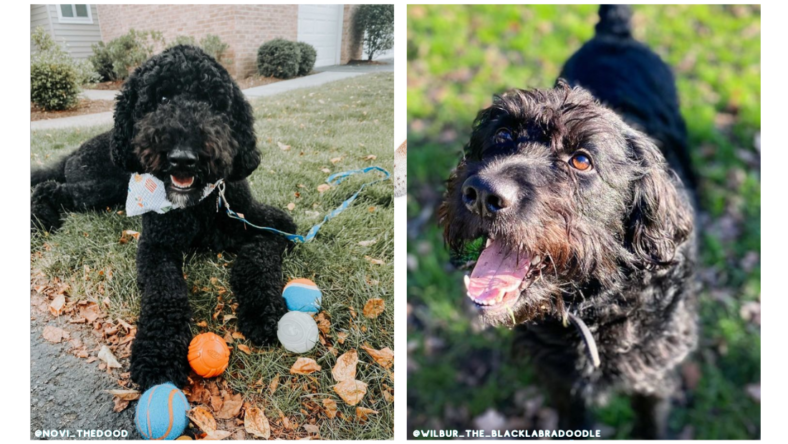
When you imagine a labradoodle or a goldendoodle, you probably imagine a blonde dog. The labradoodles and goldendoodles most of us are used to are golden, sometimes light tan, sometimes deep rusty red, but usually within that blonde spectrum. But, have you ever seen a black labradoodle or a black goldendoodle?
If you’ve ever wondered: are black labradoodles and black goldendoodles rare? I’ve got a simple answer: No.
However, the real answer about the rarity of black labradoodles and goldendoodles is a little more complicated. That’s why I’ve created this guide dispelling some of the myths you’ve heard about black doodles, and giving you the information you need to decide whether a black doodle is the right dog for you.
Meet Some Black Labradoodles & Black Goldendoodles!
Eager to see some black labradoodles and goldendoodles? Don’t worry, I won’t make you wait. Here are just a few absolutely adorable black doodles from Instagram.
1. Ralph the Black Labradoodle
Ralph is a giant black labradoodle living in Tasmania! Easily a head taller than the average labradoodle, Ralph is a gentle giant with a special love for his parent’s bed.
2. Novi the Black Goldendoodle
Novi is a more ‘average’ sized doodle, weighing in at 44 lbs. A happy-go-lucky pup who lives in Cleveland, Novi enjoys premium homemade food, adventures with mom, and all the tennis balls.
3. Sebastian the Black Goldendoodle
Sebastian is a one-year-old black goldendoodle from England who likes to spend his time chewing everything he can find, enjoying walks in the countryside, and posing for photos…he’s basically a model!
4. Wilbur the Black Labradoodle
Wilbur is a two-year-old professional sock thief– I mean, black labradoodle from Newcastle in the UK! A happy, social boy who likes to visit doggy daycare with all of his friends, Wilbur also likes solo adventures with his humans.
5. Jip the Black Mini Labradoodle
Jip is a three-year-old mini black labradoodle who loves to go everywhere with mom. Small and dainty, Jip has an impressive wardrobe of fashionable harnesses that are often paraded around their Holland home.
Black Labradoodle Basic Info
All “doodle” type dogs are mixed breed dogs that include at least some amount of poodle; that’s where the “oodle” comes from. Labradoodles and goldendoodles are sort of the “original” doodles, and one of the most commonly available varieties of this mixed breed category. Here’s everything you need to know to be informed on black labradoodles and goldendoodles.
What is a Black Labradoodle or Goldendoodle?
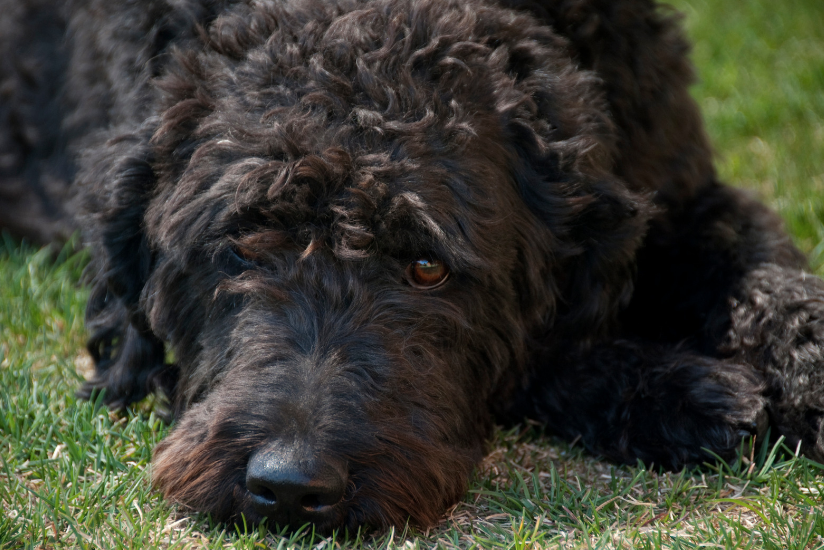
A black labradoodle or black goldendoodle is exactly what it sounds like: a labradoodle or goldendoodle that is black.
To produce a black doodle, at least one of the parents must be black, though this does not guarantee that every puppy from the litter will be black. Pairing two black dogs (for example a black standard poodle and a black lab) would give you the greatest chance of producing black labradoodles, but thanks to recessive traits, there is still no absolute guarantee.
Labradoodles vs. Goldendoodles
Labradoodles and goldendoodles are similar breeds, both produced by crossing a poodle with a type of retriever. Labradoodles are a combination of a Labrador retriever and a poodle, while goldendoodles are a combination of golden retriever and poodle.
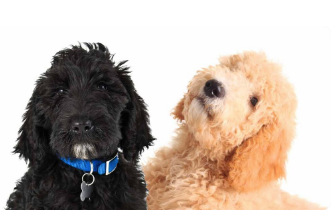
Labs come in yellow, chocolate, silver, and black, so many breeders trying to produce black labradoodle puppies will select a black lab to be the breeding partner for their poodle. Golden retrievers are always a shade of gold or blonde, so to produce a black goldendoodle, breeders will almost always cross the golden retriever with a black poodle.
Keep in mind that not all labradoodles and goldendoodles will be 50% retriever, 50% poodle. Many doodles are multiple generations away from their purebred ancestors, and could have a variety of genes that have combined to create the most desirable phenotype. Because doodles are not regulated by the AKC or any governing organization, there is also no way to guarantee that a doodle breeder has been honest with you about your puppy’s genetics.
Some breeders have attempted to standardize how they talk about their doodles. Here’s a quick rundown of how breeding programs categorize their puppies:
| Program | Parentage Details |
| F1 | Purebred x Purebred (e.g. Lab x Poodle) |
| F1b | Purebred x F1 Doodle (e.g. Poodle x F1 Labradoodle) |
| F2 | F1 Doodle x F1 Doodle (e.g. F1 Goldendoodle x F1 Goldendoodle) |
| F2b | F1 Doodle x F1b Doodle (e.g. F1 Labradoodle x F1b Labradoodle) |
| F3/Multigenerational | Closest purebred is great-grandparent or older |
Labradoodle/Goldendoodle Temperament
Black labradoodles and black goldendoodles have the same basic temperament as all labradoodles and goldendoodles. These dogs are typically medium to high energy, friendly, playful, and goofy. Labradoodles make good family dogs with training, and can be excellent running, hiking, and camping partners.
Labradoodle & Goldendoodle Size
The size of your labradoodle or goldendoodle will depend entirely on their genetics. Because there is an enormous amount of variation within this designer mixed-breed, it can be difficult to know exactly how large your doodle will be at full size. In some cases, breeders may introduce a third breed to get the size they’re looking for, and not all breeders will be up-front about this practice. In general, here’s what you can expect when buying one of these pups.
| Type | Height | Weight | Breed Mix |
| Standard | 21-24 inches | 50-65 lbs | Lab/Golden Retriever x Standard Poodle |
| Medium | 18-20 inches | 30-45 lbs | Lab/Golden Retriever x Miniature Poodle |
| Miniature | 14-16 inches | 15-25 lbs | Lab/Golden Retriever x Miniature Poodle (x Miniature breed like cocker spaniel) |
Labradoodle & Goldendoodle Health
Labs and poodles are fairly healthy breeds, and because mixed breeds tend to be healthier than their purebred parents, labradoodles and goldendoodles are typically very healthy dogs. Because of their thick, curly coat, they can develop skin sensitivities, and should regularly be groomed to prevent hot spots, sores, and irritation. Some labradoodles also have sensitive, infection prone ears, especially in hot and humid climates.
Where Can You Get a Black Labradoodle or Goldendoodle?
A simple Google search will show you a plethora of doodle breeders all over the country, but if you don’t want to pay the hefty price tag, or just want to adopt a dog in general, I recommend checking with your local shelters! Aside from your nearby rescue centers, you can also check out doodle-specific rescues like IDOG Rescue.
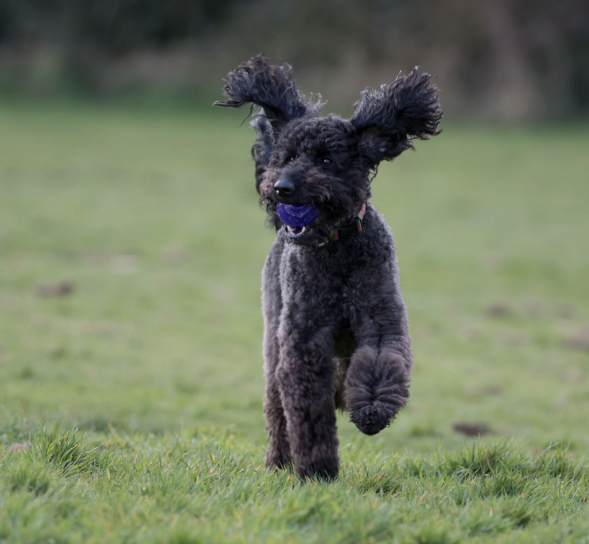
Black Labradoodle & Black Goldendoodle FAQ
Looking for more information on black labradoodles and black golden doodles? Here are some frequently asked questions from doodle-enthusiasts like you.
Are Black Goldendoodles Rare?
No! Black goldendoodles are not necessarily rare, but they are slightly more difficult to breed than the standard golden goldendoodle. Black goldendoodles are also in less demand than the more common blonde, so you might just be seeing fewer in your neighborhood.
Do All Black Goldendoodles Turn Gray?
Possibly! Black dogs show gray as they age a lot more quickly than golden and blonde dogs. If you have a black golden doodle, you can probably bet on them getting at least a few grey hairs in their senior years.
How Much Does a Black Goldendoodle Cost?
If you buy a black goldendoodle from a breeder, you can expect to pay between $2,000 and $6,000. If you find a black doodle at a shelter, you could pay anywhere from $100 to $450.
Are Black Labradoodles Hypoallergenic?
No. There is no such thing as a hypoallergenic dog. Most labradoodles are low-shedding, which can help reduce the amount of dander they shed, but no dog is truly hypoallergenic.
Where Can I Get Black Goldendoodles & Black Labradoodles?
Local shelters, doodle-specific rescues, and breeders.
Do Black Goldendoodles & Labradoodles Shed?
Yes. However, most doodles are low-shedding, so it won’t require as much work to clean up their fur. That said, doodles need regular grooming either from you or from a professional, so don’t think that just because they’re low-shedding you won’t be dealing with their fur.
The three foods that are super healthy and that almost every dog loves, even the pickiest dogs, are:
1. The Farmer’s Dog.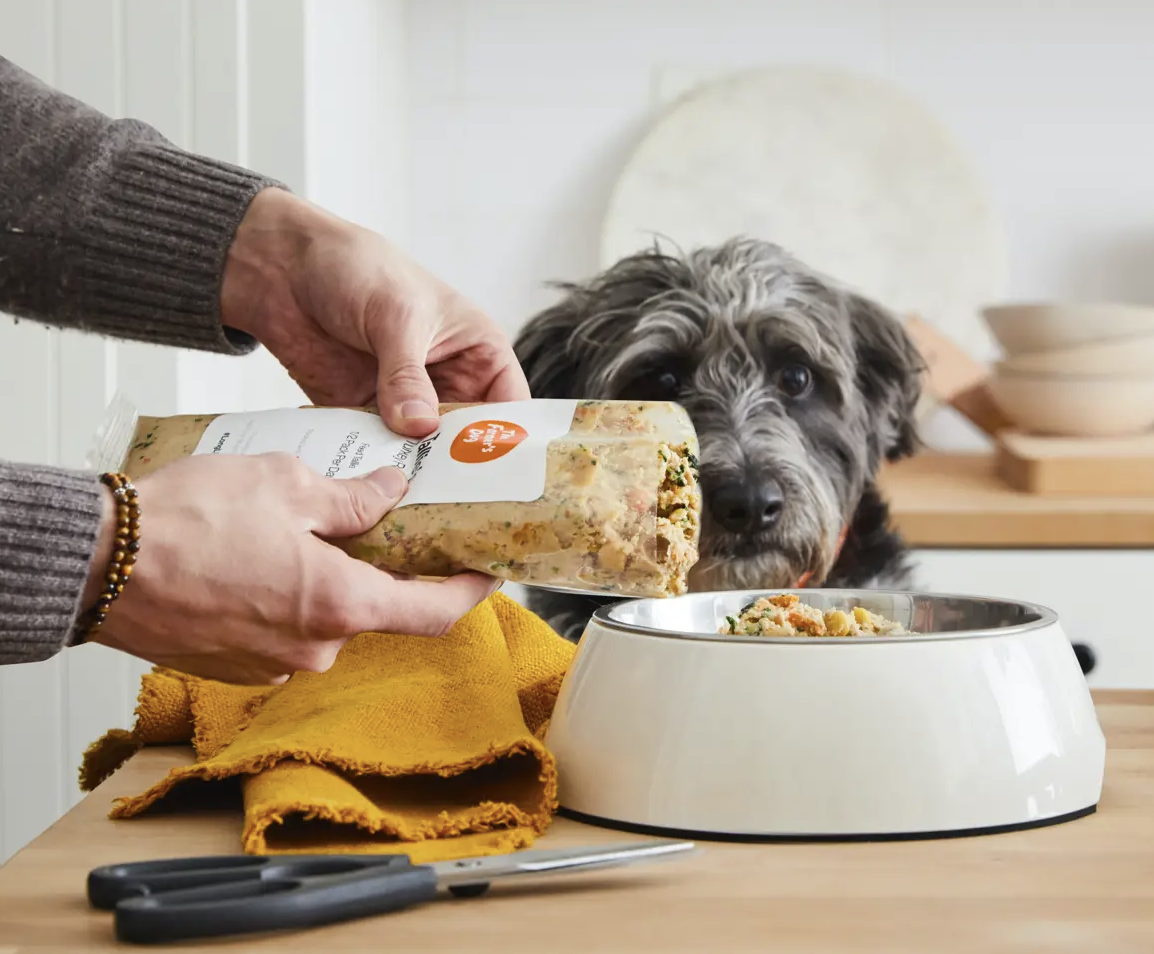
This is a fresh-frozen food that’s delivered to your home in just the right amounts for your dog. There are a number of fresh frozen dog foods available on the market and I tested them all. The Farmer’s Dog came up the winner with my picky dogs. You can see the fresh frozen food test here.
Save 60% on your first order
—
2. Sundays Food For Dogs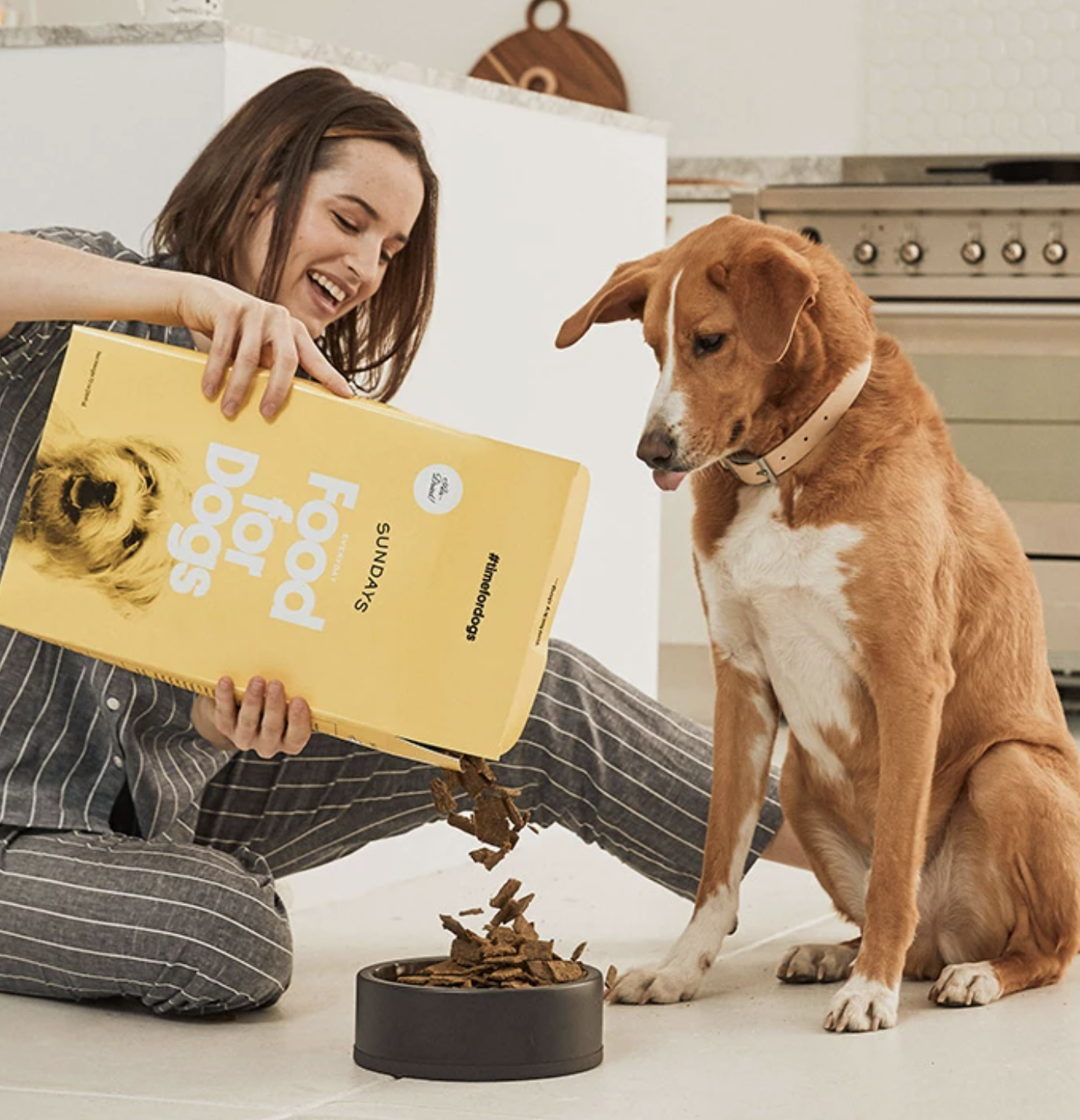
This is an air-dried food. It has the convenience of kibble (just pour it in the bow) but is much much healthier. It’s like little pieces of jerky, so dogs go crazy for it. There are a number of air-dried foods on the market. My dogs tested 3 of them. You can see the results of the air-dried food test here.
Get 35% off your first order + free shipping w/ code ROCKY35
3. We Feed Raw.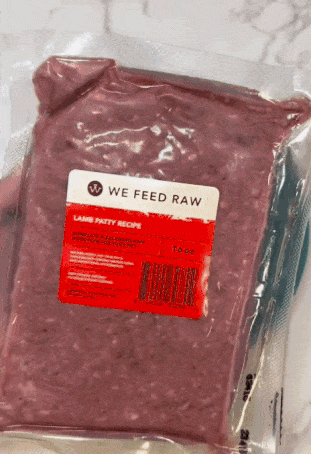
This raw food for dogs comes delivered to your home is perfectly sized portions for your pup. They primarily source their ingredients from trusted U.S. farmers, with two exceptions: venison and lamb. These ingredients are sourced from New Zealand, where some of the highest-quality and most ethically raised venison and lamb can be found. Pasture-raised and grass-fed and finished, we highly recommend trying these formulas if you’re interested in the best-quality ingredients. Save 25% on your first order.
Supplements: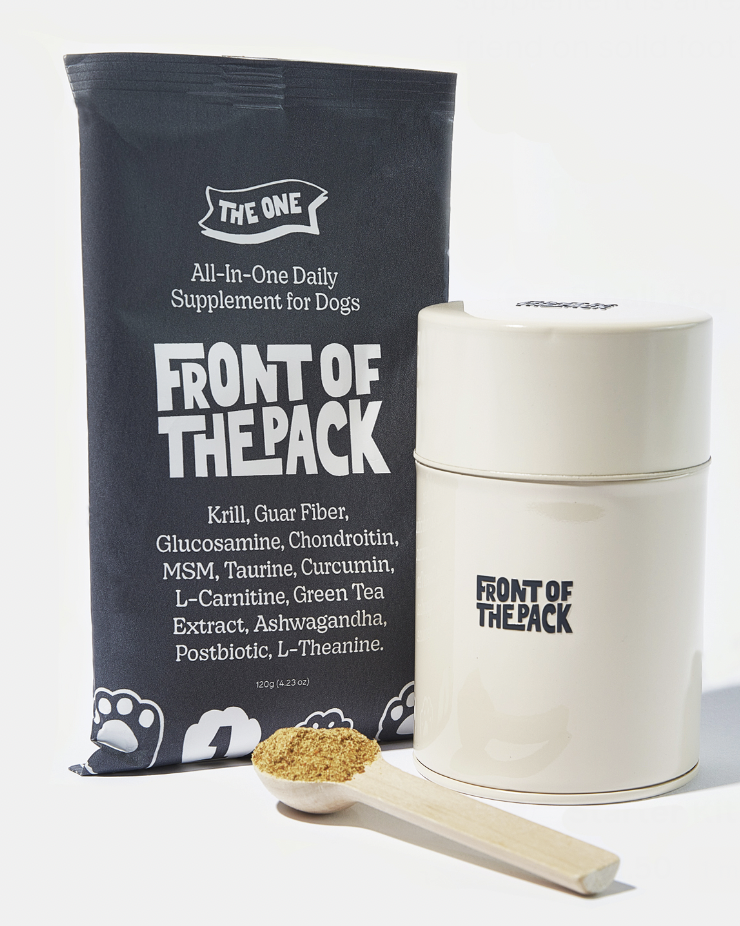
I highly recommend using a supplement on your dog’s food, not matter what you feed them, to ensure the meal is balanced and they are getting all the right supplements to help them stay healthy. The supplement I use is called The One from Front of the Pack. It has 12 ingredients that have been clinically-proven to keep your dog’s joints, skin, heart, digestion, and even their breath in tip-top shape. It’s also a powder, so easy to sprinkle on your dog’s food. For a limited time, when you buy one month you get a second month free.
Go Check out our blog to learn more about other dog breeds.



